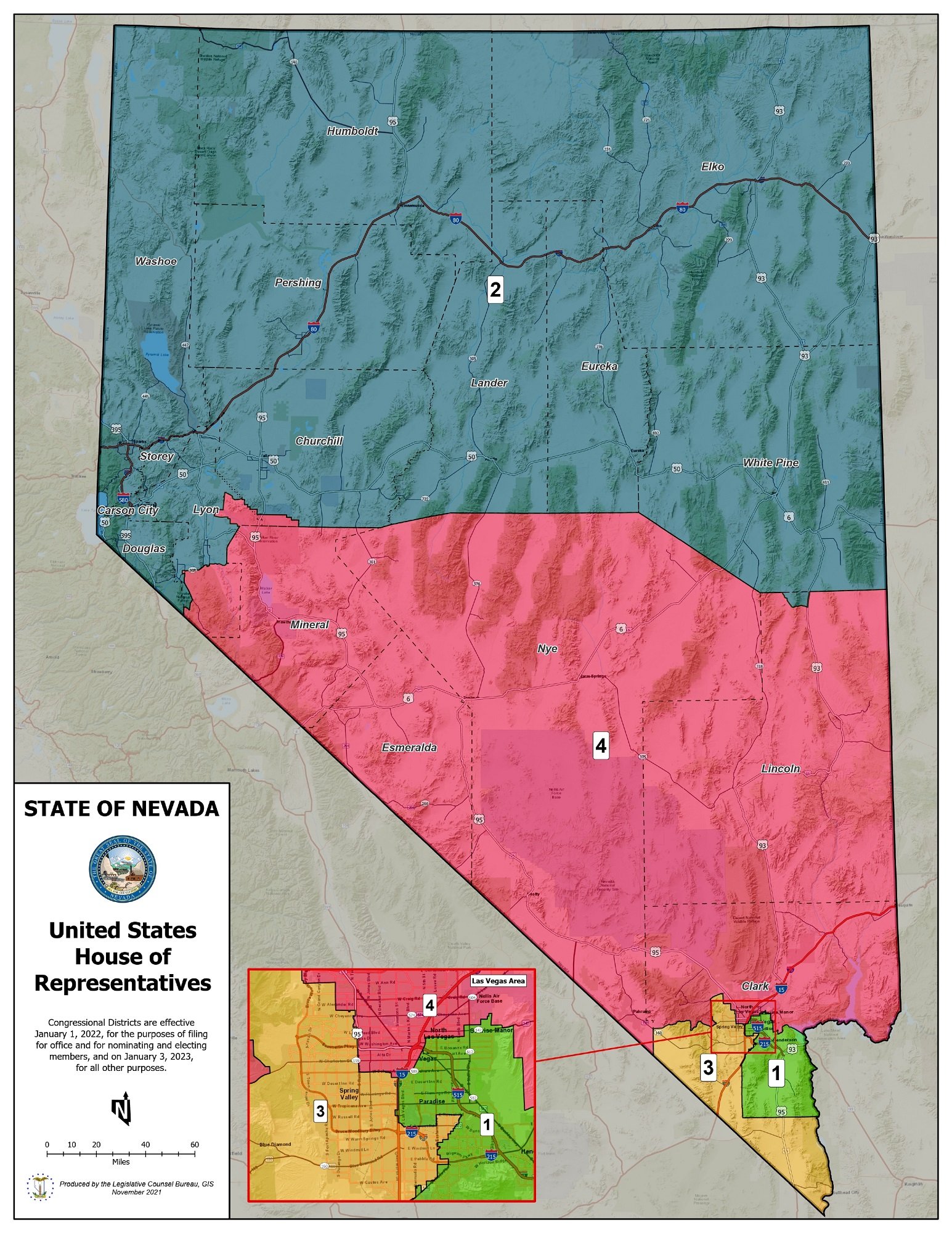
We the People Coordinators
The Nevada Center for Civic Engagement has organized our We the People Program through Congressional Districts. Each district has at least one coordinator who is responsible for supporting programs in all grade levels in that congressional district.
An Ideal Congressional District
Program Awareness·Teachers in the targeted grades and subject areas are aware of the program.·Teachers in the targeted grades and subject areas are regularly informed of program events, such as professional development opportunities and simulated congressional hearings.
Professional Development·District and state coordinators work together to ensure that teachers in the targeted grades and subject areas are regularly provided with a variety of quality professional development opportunities including, but not limited to, department meeting and conference presentations, two hour to multiple day workshops, study groups, and summer institutes.·Teachers who use the materials for selected lessons or as resource materials are encouraged to attend more in-depth, comprehensive professional development.
Communication, Support, and Follow-Up· District coordinator provides relevant information about all teachers who hold hearings and have received textbooks, training and certificates to State Coordinator.·District coordinator initiates timely follow-up telephone calls, letters, e-mails, and/or visits to educators, groups, and individuals who have supported the program or participated in program events.·Teachers using the materials receive regular, hands-on support and/or direction to other resources from district coordinator (as needed).·Teachers who use the materials feel they are part of a network of program teachers.·Teachers receive recognition for implementing the program with their students.·District coordinator receives needed professional development, support, resources, and recognition from state coordinator and the Center.·Required forms, information, and activity from the district are regularly shared with state coordinator and the Center.
Simulated Congressional Hearing·Elementary, middle, and high school classes participate in noncompetitive hearings.·High school classes participate in a district level competitive hearing.·The district competition includes qualified judges, a program, and awards. It is held at an inspiring location such as a university campus, city council chambers, etc. (They have also been held in high schools)·The winning high school class from the district participates in a state hearing.
Local, State, and National Support·Groups such as the following endorse and support the program: parents, school and district administrators, community and civic organizations, state department of education, state/national legislature.·Government officials, civic leaders, and community members serve as “experts” for students’ research.·Government officials, civic leaders, community members, and parents participate in program activities including, but not limited to, simulated congressional hearings.·The member of Congress and/or staff are informed of and actively involved in the program.·Student accomplishments are regularly recognized in the media and in the community.
Continued Growth·A plan for increasing the quality and scope of the program in the district is revised annually
WTP District Coordinators
Monthly Activity Report
Please take a moment at the end of each month to summarize any work you have done with the We the People programs at schools and/or with teachers in the district you represent.
District Coordinator Job Responsibilities
This responsibility agreement defines a one-year arrangement between the Nevada Center for Civic Engagement Congressional district coordinators, and state coordinator. State and congressional district coordinators should define specific state and congressional district goals, responsibilities, and expectations. State coordinators are responsible for assessing task completion and awarding stipends accordingly.
Textbook Distribution and Professional Development
•Work with your state coordinator to create opportunities that encourage teacher participation.
•Create ways for teachers to acquire We the People E-books or textbooks within your
congressional district to teachers who attend professional development events.
•Actively recruit teachers to attend the We the People professional development events in your
congressional district and state as well as state/regional and national summer institutes.
•Follow-up with teachers who have participated in professional development.
Outreach
•Pursue opportunities to represent, introduce, and market the We the People program to
educators, civic leaders, and civic and education organizations within your district.
Simulated Congressional Hearings
•Recruit upper elementary, middle, and high school teachers to conduct and participate in
simulated congressional hearings in their classrooms and congressional district.
•Conduct competitive simulated congressional district hearings at the high school level.
Congressional Contacts
•Establish and maintain contact with your members of Congress and their staff.
•Periodically update your members of Congress and/or staff in both their district and
Washington, D.C., offices on the success of We the People in their district.
•Involve your members of Congress and their staff with the hearings by inviting them to attend,
to serve as judges and/or speakers, and to sign the student’s certificates.
Documentation
•Inform your state coordinator and the Center of all simulated congressional hearings held in
classrooms, your congressional district, and of professional development events in your
district.






